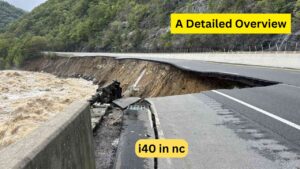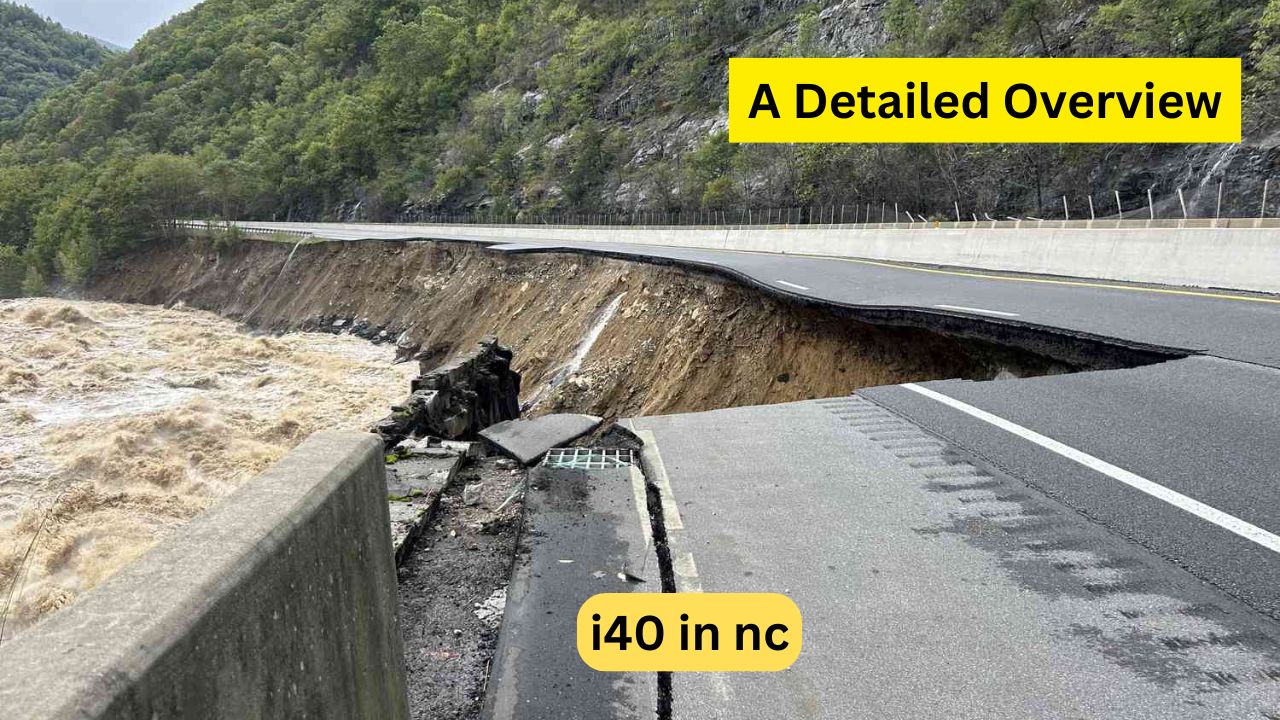I-40 Road Closures in North Carolina: Latest Updates and When to Expect Reopening
I-40 in North Carolina plays a crucial role in the state’s transportation infrastructure, connecting vital routes and supporting local and interstate travel. However, road closures along this major artery can severely impact daily commuters, travelers, and businesses. Recent closures on I-40 due to ongoing construction projects and weather-related damages have raised concerns among residents and travelers alike. In this article, we will provide a detailed overview of the current I-40 road closures in NC, updates on the expected reopening timeline, and information on how to plan alternative routes during the disruptions.
Current Status of I-40 Closures in North Carolina
As of October 2024, portions of I-40 in North Carolina have been closed due to multiple reasons, including road repairs, construction to improve infrastructure, and severe weather events that have caused damage to the highways. The North Carolina Department of Transportation (NCDOT) has been actively working to manage these closures and ensure a smooth and safe reopening.
One of the most critical closures is along the western corridor of I-40, where heavy rainfall caused landslides and flooding, making certain stretches of the highway impassable. Additionally, ongoing construction projects aiming to widen parts of the highway and repair aging infrastructure have added to the delays.
Roadwork and Construction Along I-40
A significant portion of the closures stems from major infrastructure projects aimed at expanding I-40’s capacity to meet the increasing traffic demands in North Carolina. The construction work involves road widening, bridge replacements, and upgrades to drainage systems. These upgrades are essential to accommodate growing traffic and to enhance safety measures, but they also require prolonged closures in certain sections.
One of the most extensive construction projects is taking place between Raleigh and Durham, where a long-term plan to add extra lanes and rebuild interchanges is currently underway. As a result, lane reductions and periodic closures have been enforced, causing travel delays and detours.

Weather-Related Closures and Flooding
In addition to the planned construction work, severe weather has caused further complications. Tropical storms and hurricanes that swept through the region earlier in the year led to multiple flash floods and landslides, particularly in the mountainous areas near Asheville. These weather-related events have contributed to road closures that have extended beyond their original schedules.
NCDOT teams have been working diligently to assess and repair damaged sections of the road, but the unpredictable nature of the weather means that reopening dates may be subject to change.
Expected Timeline for Reopening
The reopening schedule for I-40 closures remains fluid due to the combination of ongoing construction and unforeseen weather events. However, NCDOT has provided updates on when travelers can expect specific segments to reopen.
For the sections affected by construction, NCDOT aims to complete significant phases by late November 2024. This includes the widening project near Raleigh-Durham and the reconstruction of key interchanges along that route. However, full completion of all phases is not expected until early 2025.
Regarding the weather-damaged sections, especially near Asheville, the repairs are taking longer than anticipated due to continued instability in the area. Landslides and flooding have necessitated ongoing geological assessments. NCDOT officials estimate that these sections will reopen by mid-December 2024, assuming there are no further delays due to inclement weather.
Factors Affecting the Reopening Date
Several factors can affect the anticipated reopening of I-40 in North Carolina:
- Weather: Heavy rainfall and storms may further delay construction and repair work.
- Material Availability: Delays in procuring construction materials and machinery can affect the timeline.
- Environmental Concerns: Certain areas along I-40, especially in mountainous regions, require environmental assessments before work can continue.

NCDOT continues to monitor these factors closely and provides regular updates to keep the public informed.
How to Plan Your Travel During I-40 Closures
The I-40 closures have had a significant impact on commuters and interstate travelers alike, particularly during peak travel times. If you are planning to travel through North Carolina during these closures, it’s important to stay informed and adjust your travel routes accordingly. Here are some tips for navigating the closures and minimizing disruptions to your journey:
1. Use Alternative Routes
For those traveling in the Raleigh-Durham area, consider using US-70 or NC-147 as alternative routes to bypass I-40 closures. These roads may experience increased traffic, but they provide a reliable alternative for reaching your destination.
For travelers heading west towards Asheville, I-26 and US-74 offer viable alternatives to reach western North Carolina and beyond. However, be aware that detours can add extra travel time, especially during rush hours or in bad weather conditions.
2. Stay Updated with NCDOT
NCDOT provides real-time updates on road closures, traffic conditions, and detour routes through its DriveNC website and mobile app. Before setting out on your journey, make sure to check the latest updates to avoid unexpected delays.
Additionally, subscribing to NCDOT’s traffic alert services can help keep you informed about any changes in the status of the closures or newly opened sections of the highway.
3. Plan for Extra Travel Time
Even with alternative routes, it’s crucial to plan for additional travel time when navigating around I-40 closures. Peak travel times may result in congestion on detour routes, especially during holidays and weekends. Leaving earlier than usual and adjusting your schedule accordingly can help reduce stress and prevent delays.
4. Consider Public Transportation Options
If you’re traveling within major metropolitan areas like Raleigh, public transportation may offer a more convenient alternative to driving through detours and construction zones. Buses, trains, and ride-sharing services can help you navigate through the city without the hassle of road closures.
Conclusion
The ongoing closures and construction along I-40 in North Carolina represent necessary improvements to the state’s infrastructure. While the road closures have caused inconvenience for commuters and travelers, NCDOT is making steady progress in reopening these vital routes. By staying informed, planning alternative routes, and being patient, you can minimize disruptions to your travel plans.
